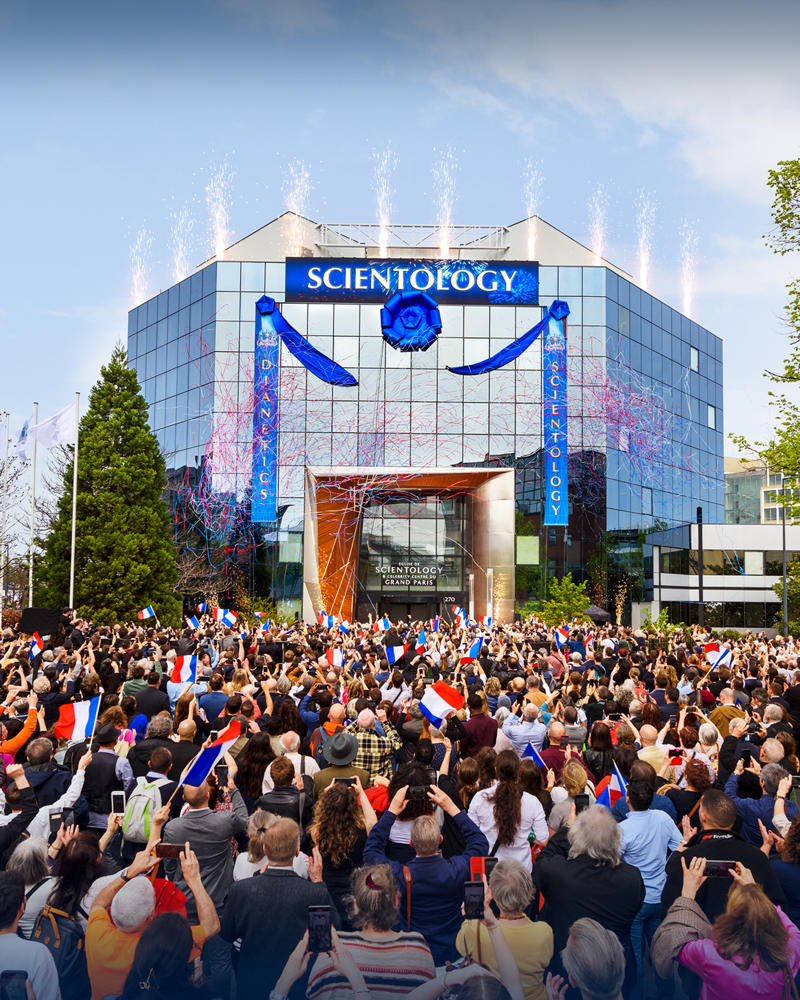Scientology Explained: Key Principles and Mentors Revealed
Scientology Explained: Key Principles and Mentors Revealed
Blog Article
Exposing Misconceptions: Separating Truth From Fiction Concerning Scientology

Beginnings of Scientology
The beginnings of Scientology trace back to the mid-20th century when L. Ron Hubbard, a science fiction author, started the belief system in the 1950s. Hubbard's development of Scientology came from his earlier self-help system called Dianetics, which he presented in the 1940s - Scientology. The change from Dianetics to Scientology noted a shift in the direction of a more extensive spiritual viewpoint that integrated elements of psychology, Eastern spiritual practices, and Hubbard's very own concepts on human existence
Hubbard's exploration right into the human mind and spirit led to the creation of Scientology as a religion centered around the concept of spiritual enlightenment and self-improvement with a process called auditing. Auditing, a type of spiritual counseling, intends to help individuals conquer mental and emotional barriers, called engrams, that hinder individual growth and awareness.
As Hubbard's teachings gained appeal, Scientology advanced right into an international activity with a substantial following. Despite disputes and criticisms bordering its techniques and ideas, Scientology remains to draw in followers looking for spiritual gratification and individual development.
Core Ideas and Practices

Another fundamental aspect of Scientology is the concept of the Thetan, the spiritual essence of an individual that goes beyond the physique. Fans intend to recognize and strengthen their connection to the Thetan via numerous techniques such as research study programs and purification rituals.
The Church of Scientology also places a solid focus on the importance of individual obligation and the belief that individuals have the power to shape their very own fates. With adherence to honest guidelines and the pursuit of self-improvement, specialists of Scientology strive to attain better degrees of happiness, success, and spiritual fulfillment.
Controversies and Objections
In the middle of Scientology's core beliefs and practices exists a landscape marked by controversies and objections that have actually sparked extreme debate and analysis. Among the major objections leveled versus Scientology is its secretive nature and the alleged exploitation of its participants. If they attempt to leave, previous members have actually talked out regarding feeling pressured to donate huge amounts of money to the Church and dealing with extreme consequences. In addition, Scientology's status as a tax-exempt spiritual organization in some nations has actually been a point of opinion, with critics suggesting that its practices are a lot more akin to a service than a religion. Scientology.
Another location of conflict surrounds the Church's treatment of critics and dissenters. Records have actually emerged of harassment, intimidation, and legal hazards guided at those who speak up versus Scientology. This has increased problems about freedom of expression and the company's dedication to openness and accountability.
While Scientology has vehemently rejected most of these claims, the conflicts and objections bordering the Church remain to sustain public apprehension and analysis.
Scientology's Impact in Culture
With its visibility in numerous fields of culture, Scientology's impact can be observed in both refined and overt methods, shaping perceptions and interactions. In check my site the realm of education and learning, the Church of Scientology has actually encountered analysis for its initiatives to present its teachings into colleges via programs like "Applied Scholastics." Doubters suggest that such efforts blur the lines between church and state, possibly influencing the instructional experiences of trainees. Additionally, Scientology's influence encompasses the realm of mental health, where its sights on psychiatry and psychology this link have actually stimulated arguments within the medical area. The church's anti-psychiatry position has led to skepticism and problems regarding the efficacy of psychological wellness therapies. In the world of entertainment, Scientology's association with high-profile celebrities has actually brought interest to the religious beliefs, both favorably and adversely. The participation of well-known figures in Scientology has, sometimes, offered to popularize the religious beliefs, while in others, it has attracted criticism and questioned about the church's methods and beliefs.
Debunking Common Misconceptions
What misconceptions about Scientology are generally held and how can they be unmasked? One usual mistaken belief concerning Scientology is that it is a cult. Nonetheless, the Church of Scientology is legally acknowledged as a faith in many countries, including the USA, where it has tax-exempt standing. Like various other religions, Scientology offers spiritual support and techniques for its members.
An additional misconception is that Scientology forces its members to reduce connections with their households. Actually, the church stresses the value of family members connections and encourages participants to maintain healthy and balanced links with their enjoyed ones.

Verdict
To conclude, webpage it is very important to separate fact from fiction when talking about Scientology. By examining its origins, core ideas, conflicts, and impact in culture, we can disprove usual mistaken beliefs bordering this religious beliefs. It is essential to approach the topic with a critical and unbiased way of thinking in order to recognize Scientology precisely and without predisposition.
Rooted in a foundation of spiritual enlightenment and individual development, Scientology's core beliefs and practices encompass a varied variety of concepts and routines. Central to Scientology is the belief that humans are never-ceasing spiritual beings who have neglected their true nature. The involvement of famous numbers in Scientology has, in some situations, served to promote the religious beliefs, while in others, it has attracted objection and raised inquiries concerning the church's ideas and methods.
The Church of Scientology is legally identified as a faith in numerous countries, consisting of the United States, where it has tax-exempt condition. Like other faiths, Scientology offers spiritual guidance and techniques for its members.
Report this page